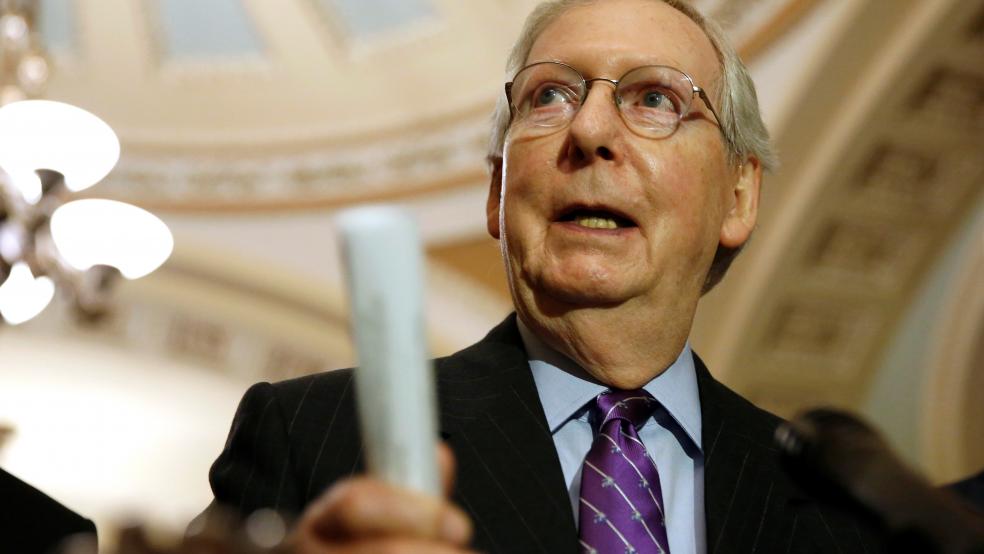Top lawmakers and the White House scrambled Friday to negotiate a massive, bipartisan stimulus package to address the widespread economic fallout of the coronavirus pandemic, aiming to bridge some deep divisions on specific proposals. The negotiators hope to reach a deal before an ambitious end-of-day deadline set by Senate Majority Leader so that the bill can be ready for a vote on Monday.
McConnell took procedural steps Friday to prepare for that vote.
The negotiations are reportedly being conducted by four bipartisan task forces covering rebates and tax breaks to help individual Americans; aid for small businesses; health care issues; and relief for specific industries most affected by the crisis.
Stimulus likely getting bigger: The package being negotiated is reportedly likely to exceed the $1 trillion cost of the Senate GOP plan released Thursday evening, with both lawmakers and the White House reportedly pushing to make it bigger and to change the structure of the direct payments to Americans laid out in the Senate proposal.
Treasury Secretary Steven Mnuchin reportedly has been pressing to spend more on direct payments to Americans while Democratic leaders also are looking to spend more on workers as well as hospitals and other health-care facilities. Democrats reportedly are pushing to bolster unemployment insurance for workers who are furloughed or laid off as businesses close or scale back.
As of Friday afternoon, Sen. John Thune (R-SD) said two main sticking points remained in the talks: whether or not to bolster unemployment insurance and funding for hospitals, according to The Hill.
Pushback on smaller payments for the poor: The 247-page coronavirus relief package unveiled by Senate Republicans on Thursday, called the CARES Act, would provide payments of up to $1,200 per person and $2,400 per married couple. Those payments would phase out for those earning between $75,000 and $99,000, based on 2018 tax returns, with individuals earning over $99,000 and married couples making more than $198,000 not eligible. But people with incomes up to $2,500 would get a minimum payment of $600 (or $1,200 for couples).
That regressivity drew bipartisan scorn. “We are beginning to review Senator McConnell’s proposal and on first reading, it is not at all pro-worker and instead puts corporations way ahead of workers,” Pelosi and Schumer said in a joint statement Thursday night. GOP Sens. Mitt Romney of Utah and Josh Hawley of Missouri were also among those criticizing the regressivity of the direct payments. “The current bill has promise but it shouldn’t give lower earners smaller checks,” Romney tweeted. “We need to fix this to ensure lower earners get equal payments.”
The final package is reportedly likely to ensure poorer Americans don’t receive smaller payments.
President Trump, at a White House briefing Friday, said that the direct payments Americans would be “much more” than $1,000 and that he’d be open to coming back to Congress for more. “I want to get workers money,” he said, adding that if more stimulus is needed, “we’ll do something later, I’m sure.”





